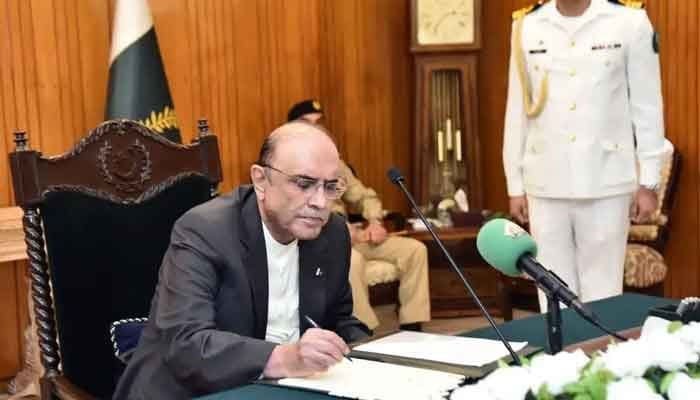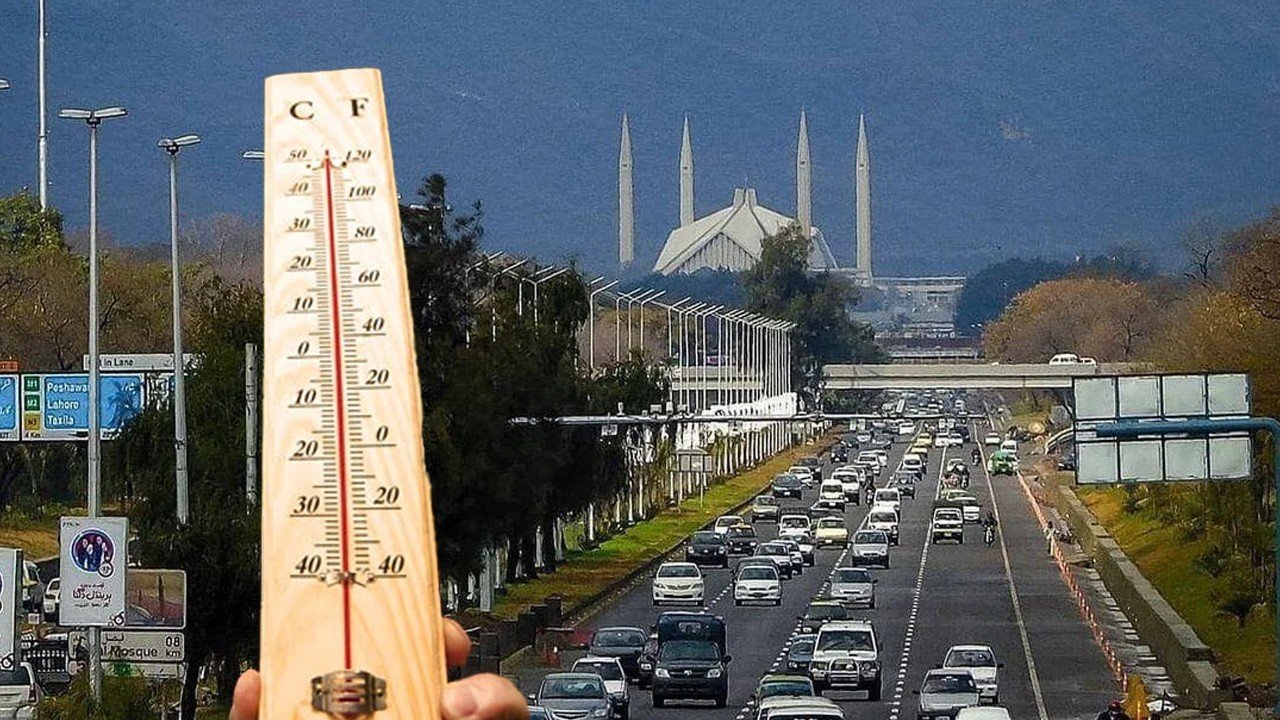PM Shehbaz Sharif had previously sent an advisory to President Zardari for ratification after the amendment was approved by Parliament.
President Asif Ali Zardari has officially signed the 26th Constitutional Amendment, making it a law. Following the President’s endorsement, the Gazette notification has been issued, and the amendment is now fully implemented.
The signing ceremony took place at the Aiwan-e-Sadr (Presidential Palace) and was attended by various parliamentarians, highlighting the collaborative effort behind this significant legislative change.
Prime Minister of Pakistan Shehbaz Sharif had previously sent an advisory to President Zardari for ratification after the amendment was approved by Parliament. With the President’s signature, the 26th Constitutional Amendment is now an integral part of the Constitution.
It is noteworthy that the amendment received approval from both the Senate and the National Assembly. While the Pakistan Tehreek-e-Insaf (PTI) party announced that they would not vote in favor of the constitutional draft, Maulana Fazlur Rehman supported the amendment.
Earlier, the National Assembly and Senate passed the bill with a two-thirds majority under which the term for the Chief Justice of Pakistan has been set at three years.
A 12-member parliamentary committee will select the new Chief Justice from a panel of the three most senior judges.
26th constitutional amendment
Under the constitutional amendment, the term for the Chief Justice of Pakistan has been set at three years.
A 12-member parliamentary committee will nominate the new Chief Justice of Pakistan from a panel of the three most senior judges.
The committee, comprising eight members from the National Assembly and four from the Senate, will propose the name to the Prime Minister, who will then forward it to the President for final approval.
Besides, a Judicial Commission of Pakistan, led by the Chief Justice and including three senior judges, two members each from the National Assembly and Senate, the Federal Minister for Law and Justice, the Attorney General, and a nominee of the Pakistan Bar Council, having not less than fifteen years of practice in the Supreme Court, will be responsible for appointments of the judges of the Supreme Court.





